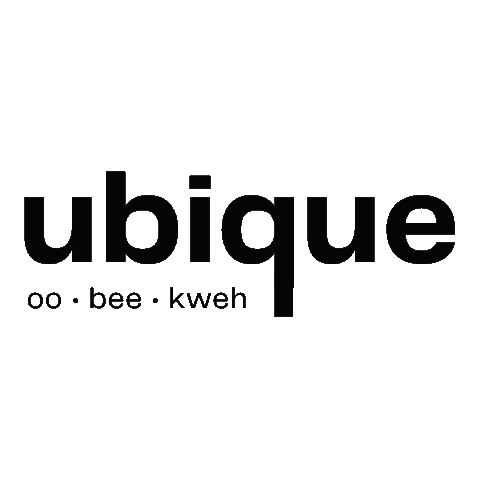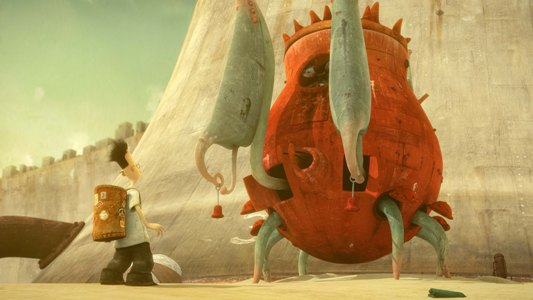Interview with Sophie Byrne
Interviewed by Ajna Lacevic, Dilan Kinali, Mei-Lian Wyithe
Sophie Bryne
An Interview with the accomplished producer
A local Melbournian that has been producing films and tv shows; including the animated short film The Lost Thing. She has received countless awards varying from the AACTA Award for Best Short Animation, Kodak Inside Film Award for Best Short Animation to the St Kilda Film Festival Best Animation and Greg Tepper Award for Outstanding Achievement by Film Victoria. Her name is Sophie Byrne.
Ajna: What have you been doing to occupy yourself during the pandemic?
Byrne: Well, I've been as busy as ever because work-wise it hasn't affected animation production. It's certainly affected live-action production, but I think because animators have all been able to be set up at home remotely, our business has actually not been affected so much. So as I said up the top, I've actually been as busy as I've ever been. It hasn't really touched me workwise, socially, it certainly has touched me and certainly with my son and stuff. So it's, you know, challenging from the socialization point of view for all of us, but professionally and work-wise it hasn't actually had a great impact, which has been great for the animation industry.
Ajna: That's good. Have you been doing any hobbies or have you picked up anything to do during these times?
Byrne: No, (both laugh) no, I've maintained my hobbies. I think I am blessed because I have animals to look after down here on the farm so I horse ride. Looking after animals comes under the law. It's unlawful not to continue to look after your animals. So I have been able to maintain my hobbies, I guess more than starting any new ones.
Ajna: How many horses do you have?
Byrne: Well, I've got one that I have right now and one that's retired and my parents breed racehorses, well my father does, I don't actually believe in horse racing so much but yes, so it's a horse stud.
Mei: When did you know you wanted to become an animation producer?
Byrne: I think I didn't until I was in it. I definitely always wanted to be in the media and I had a bit of a creative bend at school. So, my main subjects in HSC were the humanities subjects like English as I was never taking maths forward. I wanted to do journalism, Cinema Studies at Monash, and I wanted to be in the moving image industry. I didn't know in what capacity until I actually moved to London and fell into a company called passion pictures at the time, which was a small boutique animation company. That was in the early 90s, and I stayed there for about 12 years. In that time, we grew, and it eventually became the largest Animation Studio in Europe for commercial work. I guess it was a live-action film that I was more interested in but the animation Factor just crept up on me.
Mei: Does Otto (son) watch your short films?
Byrne: He watches all my TV series and short films that are in development and sometimes comments on them, he speaks to the creator's and sometimes that's received well, and sometimes it's not. We have got a feature film starring next month that I have been developing for the past 10 years, so that's in terms of getting into building that artistic team and getting the script right. And then the most important thing is getting the financing. That's the real tricky aspect of independent filmmaking is raising enough money.
Mei: Did you enjoy being a part of the short film the Lost thing?
Byrne: I mean Sean hates being called a genius, but he is and just what he can do with his pencil in terms of illustration, and also writing is amazing. when I first met him in Perth by phone hook-up, I have to convince him to want to make the Lost thing as a short film he was very sceptical that he thought I was maybe some Hollywood type that had come out of London after doing all the Gorillaz music videos just didn't see that there would be a connection, but I soon convinced him otherwise. I am now manager, and we've got two other projects with him and a TV series and feature, but yeah, the actual experience of deciding what that project would work. Initially, we thought maybe it's a TV hour special, then we had it for a half-hour, and then we had some crazy idea that we could make it into a feature, but in the end, it landed exactly where it should be a nice 15-minute clip.
Mei: What do you consider the best part of your work apart from the lost thing?
Byrne: My time in London was more commercial so I did a lot of music videos with a lot of big bands and artists and I was the front runner for the band Gorillas that came from an artist called Jamie Hewlett. The gorillas went on to be huge, so that was both award-winning, but could also be found in lots of music sales. That was a big project I was involved in and was certainly a career highlight. At passion pictures, when we first won our first oscar for our documentary. I didn't have much to do with the vehicle on credit on IMDb but it was my first feature out of the company, and I really enjoyed the script in process and looking at rough cups and talking to the producer. I love my job. I guess, but I really love the inspirational creators and artists and working alongside them.
Dilan: What are your goals for your future in producing?
Byrne: We’ve got a few… most of them are to get the work financed! It is particularly expensive and challenging to find the budget for independent animation films in Australia; our budgets are an “itsy bitsy” fraction compared to those of the American films. So, my immediate goals with the five projects that are in my slate is to get them all financed. My most recent project, ‘Scary Girl’, is pretty much all financed now and is going into production now. It should take about 18 months to 2 years to complete the project, but getting it finished is an immediate goal for me as I have been working on it for a very long time. Getting studio interest for my other project, ‘The Arrival’ is a secondary goal for me. But the main goals for my future in producing are getting the projects financed, ready for production, and released as soon as possible; and hopefully go on to win some awards!
Dilan: You mentioned financing projects as quite a big hurdle for your career. Are there other ways to fund projects other than studio grants?
Byrne: Certainly some smaller projects and short-films get funding through ‘Kickstarter’ support and initiatives, but we also get government support here which is terrific (although it’s never really enough!). I’ve also been very lucky to have Film Victoria and Film South Australia all put development funding into my projects, which certainly get them into a stage where they can go ‘to market’, where a sales agent/team tries to sell the project to various independent producers. But, it really is tough to make it in this industry. You have to be tenacious.
Dilan: What advice would you give young people who aspire to work in the film industry?
Byrne: You’ve got to have patience. It doesn’t simply fall into your lap; it’s hard, you’ve got to love it, have the right temperament, and have the desire to make it work. You need to find good stories, because they are the foundation of making good movies.

